One of the best things about iodine is that it’s an over-the-counter supplement available to almost everyone.
Iodine, as a therapy for thyroid disease, can be extremely effective and is within the reach of everyone reading this.
It’s cheap, readily available, and doesn’t require a prescription to obtain.
That being said, there are some potential downsides to the use of iodine, especially in the setting of existing thyroid disease.
In this article, we are going to explore the difference between iodine dosages and talk about which dose you should be using.
In addition, we are going to set the record straight on iodine and discuss why most people need it.
Iodine and Thyroid Disease
There is no shortage of controversy surrounding the use of iodine, especially in the setting of thyroid disease.
There are groups of people, who I still encounter to this day, who believe that iodine is a harmful nutrient or even worse, a toxin of some sort that will damage their thyroid if they take it.
This kind of logic stems probably from an incorrect interpretation of certain studies that show that there may be a link between the development of Hashimoto’s thyroiditis (1) and the use of iodine.
These studies have shown that as developed countries have increased their consumption of iodine the rates of Hashimoto’s have climbed in lockstep (2).
This has led many researchers (and doctors) to conclude that iodine is somehow responsible for this increased rate of thyroid disease.
But a deeper look at the research doesn’t really point to that conclusion.
Instead, it suggests that the development of Hashimoto’s thyroiditis is a complex disease with multiple moving parts.
And iodine supplementation, in the right setting and with the right nutrient deficiencies, may trigger an inflammatory process in the thyroid gland which can trigger Hashimoto’s thyroiditis.
But this is not the same thing as guaranteeing that using iodine will cause Hashimoto’s nor does it suggest that using iodine is harmful or should be avoided.
On the contrary, we actually know, and have scientific proof to back it up, that iodine is an essential nutrient for thyroid function (3).
Avoiding iodine, or becoming iodine deficient, is a quick way to CAUSE thyroid disease or worsen your existing disease.
The avoidance of iodine, even in the setting of Hashimoto’s thyroiditis, may actually be making your thyroid WORSE.
Whether or not iodine is helpful or harmful depends largely on your body and how you are using it.
What dose you are taking when you are taking it, and what you are taking it with matters a lot when it comes to using iodine.
We are going to have a discussion on each of these points and talk about how you can use iodine safely so that it doesn’t cause any problems.
Using it in this way may, on the contrary, actually improve your thyroid status and make you feel better.
I’ve found very few over-the-counter therapies that can have the potential positive impact on the thyroid as iodine can.
3 Different Categories/Doses of Iodine Use
We know that humans have no way of producing iodine on their own.
Because of this, they MUST consume iodine either from their diet (or supplements, as the case may be).
Most dietary iodine comes from animals and plants that grow in the ocean where iodine is concentrated.
Because most people, especially in the United States, don’t consume sea vegetables (like kelp or nori) on a frequent basis, the government has fortified certain foods with iodine (4) to supplement.
The only problem is that most of these foods are not considered to be “healthy” and so may be avoided accidentally by people who are actually health conscious!
When you combine this with the fact that many individuals don’t consume sea vegetables and that many thyroid patients are weary or just scared of using iodine period, you get the perfect set-up for iodine deficiency even in developed countries.
There is a strong case for supplementation given these facts which is why we need to have a discussion on doses.
As I mentioned previously, how much iodine you take can dramatically have an impact on thyroid function (either positive or negative).
Take a dose too small and you may remain deficient.
Take a dose too high and you may cause inflammation or trigger an autoimmune process.
So which is the right dose?
There are really 3 categories of iodine use that most people are aware of.
Note: your current doctor is probably not aware of any of these, but they exist in the community and each has a following of people who support their use.
Low Dose Iodine
Low-dose iodine consists of doses of iodine within the “normal” RDI range.
The RDI (recommended daily intake) set forth by the Food and Nutrition Board is around 150-270mcg of iodine per day (5).
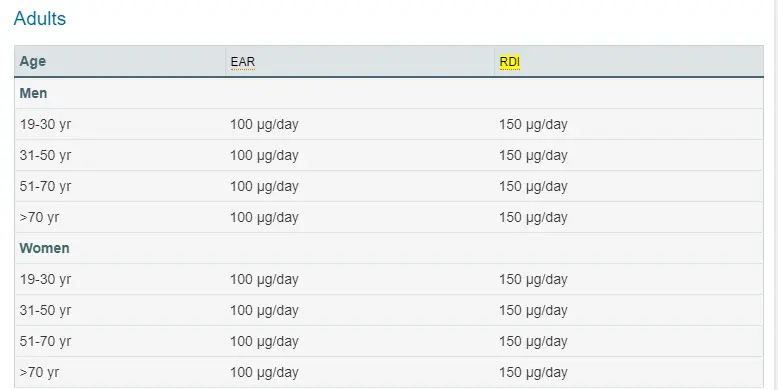
Some people get upset when I mention the RDA because they know that these ranges are not always accurate.
While that may be true for some nutrients, it’s not true for iodine.
The RDA for iodine is one that is grounded in real science and has been backed up by many studies.

These studies, based on populations that are monitored after iodine fortification in foods, show that iodine intake and iodine-induced problems present in a U-shaped pattern.
The risk of thyroid-related problems rises with low iodine intake and high iodine intake and declines with iodine intake in the range of 150 to 300 mcg per day.
From this data, we can infer that iodine dosing in this low dose range is the safest.
High dose Iodine
High doses of iodine, at least for the purpose of this article and discussion, range from 1 milligrams to 12.5 milligrams per day.
The range of iodine intake from 300 mcg per day all the way up to 1,000 mcg per day (1 milligram) falls somewhat in the “gray area” and doesn’t fit neatly into either low-dose or high-dose territory.
This area is probably fine for many people, but there’s no data to indicate that it’s safer than low doses.
As far as high-dose iodine is concerned, we do know that this level of iodine intake is associated with an increased risk of thyroid-related problems.
But this increased risk doesn’t stop many people from using it which is where things get tricky.
Many patients have found that high-dose iodine provides plenty of benefits and boosts thyroid function which is why they evangelize its use.
The main problem with their recommending high-dose iodine is not that it doesn’t work or won’t work, but more about the risks versus the rewards.
While is true that pushing higher doses of iodine may be beneficial for some, there’s a near equal amount of people who may experience significant (and permanent) thyroid-gland problems as a result of its use.
Unfortunately, though, I’ve found the pro-high-dose iodine camp to be somewhat dishonest in their evaluation of both the pros and the cons.
They do recognize that high-dose iodine can be beneficial, in some situations, but rarely ever talk about the side effects that it can cause.
They will use the Japanese population as an argument that high dose iodine is safe while simultaneously ignoring the population data which shows it’s harmful.
So even though this remains a potential option, beware of using it and beware of those who promote it.
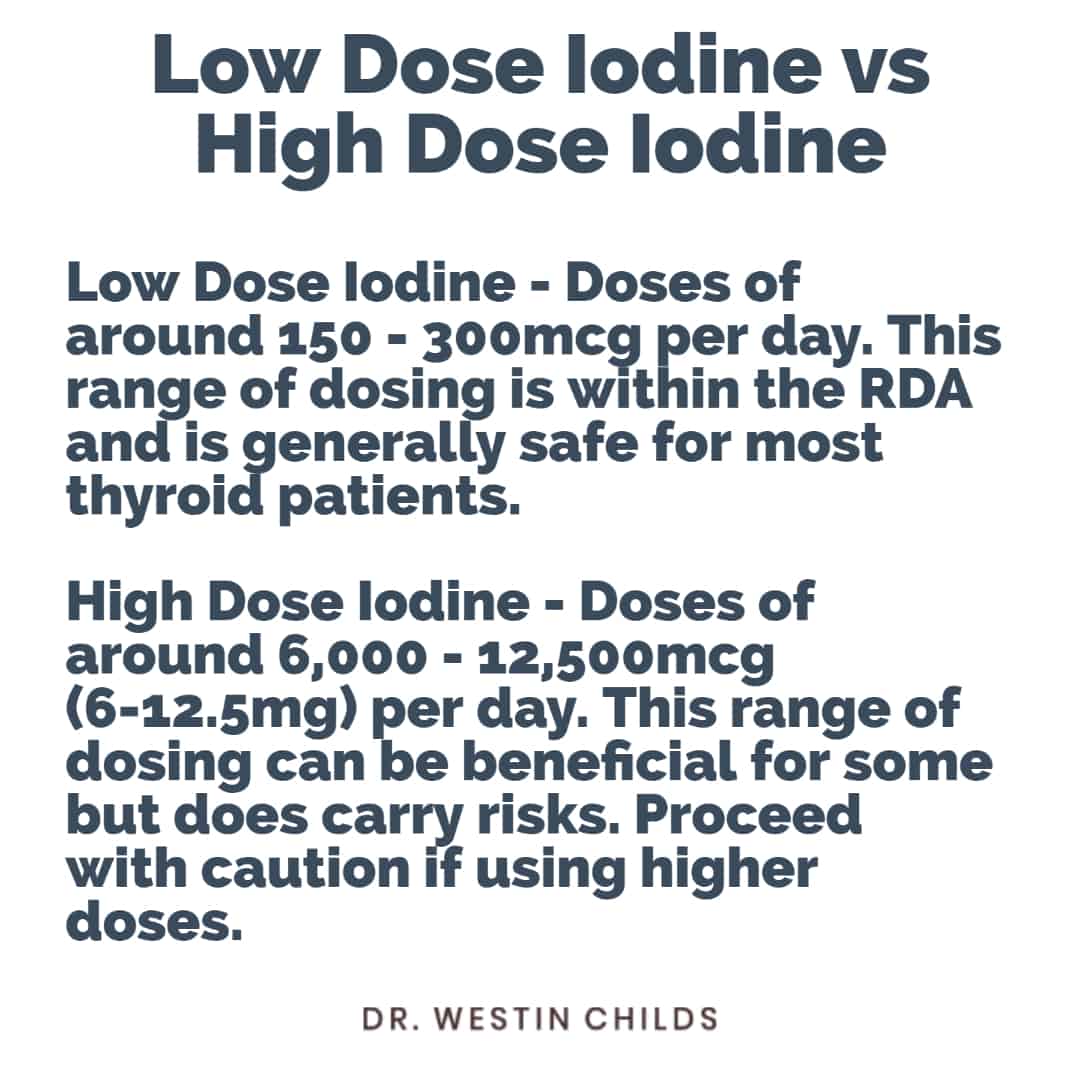
Very High Dose Iodine
I want to bring up very high-dose iodine, not because I recommend it but because you should be aware of it.
Unlike low-dose iodine and high-dose iodine, I do not believe that there is a time or place for the use of very high doses of iodine.
Very high doses of iodine would include doses that range from 25 mg (milligrams per day) all the way up to 50 mg (milligrams) per day.
These incredibly high doses are sometimes recommended by providers and forums around the internet but I do believe they can be dangerous.
I’ve seen numerous accounts of individuals who use doses in this very high range who CREATE thyroid problems seemingly out of nowhere.
These people are in the comment sections of my blog and YouTube videos and have been frequent enough to give me pause when recommending very high doses of iodine.
I simply don’t believe there is any evidence that incredibly high doses are any more effective than low-dose iodine or moderately high-dose iodine (in the 6mg to 12.5mg range).
The high doses of iodine are sufficient to help with repletion and should be preferred over very high doses of iodine.
If you are considering using these very high doses of iodine I would be very cautious of this approach.
Even if it isn’t harmful right away you have to ask yourself why would you opt for these doses over smaller safer doses of iodine.
Side Effects Associated with Iodine Use
Even when used in appropriate doses it’s still possible that you may experience certain side effects with iodine use!
These side effects do not mean that you need to stop using iodine but they may be an indication that you should back off on your dose.
Low doses of iodine don’t seem to have a strong effect on the thyroid gland but higher doses may start to impact both thyroid function and your thyroid gland.
The thyroid gland has a protective mechanism built in which blocks the update of excessive doses of iodine to prevent states of hyperthyroidism.
Moderately high doses of iodine can trigger this response and may explain specific changes in thyroid function in the short term.
But just because this can happen doesn’t mean you should be scared of it occurring.
Even when it does occur this effect tends to be minimal.
In addition, and at least in my experience, you are much more likely to experience positive side effects (such as increased production of thyroid hormone) than negative side effects.
Other side effects of iodine use may include:
- Fatigue
- Nausea
- Rashes/hives
- The sensation that your thyroid is swollen (if this occurs you should stop iodine supplementation)
These side effects can and should be minimal if you are using appropriate doses of iodine but you should be aware of them.
The side effects listed above tend to stem from the thyroid gland directly.
But it is my opinion that taking iodine by mouth may also have a direct impact on existing thyroid hormones that are already produced in your body.
This may be why some individuals who take iodine notice an almost immediate improvement in their symptoms.
The reason that this may occur is probably related to the structure of iodine and how it may displace other halides that share a similar electron outer shell.
It has been theorized (but not proven to my knowledge) that halides (bromine, chlorine, fluorine) may displace iodine on thyroid hormone molecules.
This may happen because all of these chemicals contain a similar electrical charge.
Normally, each thyroid hormone contains 4 (for thyroxine) or 3 (for triiodothyronine) iodine molecules on it.
But you can imagine that, in some instances, one or more of these iodine molecules may be displaced by these other chemicals.
If that occurs they may render the thyroid hormone molecule inactive which would then cause a mismatch between your thyroid lab tests and your clinical presentation.
Imagine if even a small number of thyroid molecules in your body were inactive.
Your lab tests might show that your serum levels of T4 and T3 were normal but they wouldn’t be able to tell you how well these molecules are working.
By giving yourself iodine, in supplement form, you could create an environment where these halides might be displaced from thyroid hormone molecules and render them active again due to competitive binding.
If this occurs (and I believe there’s good reason to believe it does) then the use of iodine could almost instantly improve thyroid function in your body through this mechanism.
It’s my belief that this mechanism not only explains why thyroid patients do better on higher doses of iodine but it also explains why some people feel almost immediately better when using it.
Is this happening in every patient? I don’t believe so but I do think it’s happening in more patients than we probably think.
And the reason I came up with this idea was because of my own experience.
When I used high doses of iodine I noticed breakouts in my skin that would appear and quickly disappear within a day or so.
And these skin changes were consistent with a condition known as bromoderma which is what occurs when your body eliminates excess bromide (a halide).
When it does occur I’ve seen patients tend to experience a quick rush of negative symptoms (flu-like symptoms, breakouts, acne, feeling fatigued, and so on) as the body attempts to eliminate these halides.
So if you’ve ever experienced these symptoms while taking iodine it may actually be a good thing related to a detox-like reaction and not a negative side effect or even a reason to stop using iodine.
What Dose Should You Take?
If you aren’t sure what dose to take then you can use these guidelines to help:
- As far as safety is concerned, you will optimize the benefits and minimize the risks by using a dose of iodine in the range of 150 to 300 mcg per day.
- Some people know that higher doses may provide even more benefits which is why they are constantly pushing the limits. If you want to push higher than 300 mcg per day, I do not recommend exceeding 1 milligram per day. This higher-end range is based on the average intake of the Japanese population which consumes around 1-3 milligrams (1,000 mcg to 3,000 mcg) on average.
- You can push doses higher than 3 mg per day (some people go as high as 12.5 mg, 25 mg, or even 50 mg) but I do not recommend this approach. It’s not that these higher doses don’t have benefits, but they come at an unacceptably high risk of side effects some of which may be permanent.
Personally, I get around 150 mcg per day with the use of supplements (to hit the bare minimum) and then get the remainder from whole food sources.
This approach ensures that I will never be deficient, but also allows for some wiggle room in the event that I eat iodine-rich foods.
Using Iodine with Selenium
I touched on this previously but I want to make sure we go into it in a little more detail here.
It’s important to understand that there is probably a connection between iodine use and damage to the thyroid gland but only in the setting of co-existing selenium deficiency.
Selenium is necessary for the production of powerful antioxidants such as glutathione.
A lack of selenium (selenium deficiency) may set you up for inflammation in the thyroid gland if you are also using iodine.
We even have studies to suggest this is the case (12).
But what’s interesting is that as long as you replete your selenium (and zinc and other nutrient deficiencies) before you take iodine this shouldn’t be an issue.
How do you know if you have sub-optimal selenium levels?
My way of thinking about nutrient deficiencies is simple:
If you have one nutrient deficiency then there is a very high probability that you have other nutrient deficiencies.
I operate under the assumption that you are deficient unless you are currently already using a broad multivitamin or if you’ve used a moderate dose of selenium or zinc recently.
If you haven’t then you should assume that you are deficient and you should use these nutrients concurrently (meaning at the same time) as iodine.
I also wouldn’t recommend that you look solely at your serum (blood) markers as a way of assessing whether you are deficient or not.
Blood tests are not an accurate way to assess iodine deficiency or most other nutrient deficiencies and may lead you astray.
So what should you do?
I would recommend you simply supplement with a good thyroid-friendly multivitamin either before you take iodine or at the same time.
A good multivitamin will have all of the necessary micro-nutrients and vitamins that your thyroid gland needs and will provide adequate protection against iodine-induced damage.
You can probably find all of these ingredients as standard in most high-quality multivitamins (but be wary of store-bought multivitamins).
Conclusion
The one thing I want you to get out of this article is the fact that iodine plays an important role in thyroid hormone regulation and it should not be avoided by the majority of patients with thyroid disease (even those with Hashimoto’s).
Dosing of iodine should be personalized and, if possible, addressed with your current physician.
You should be aware, however, that many physicians are probably not aware of the nuances associated with iodine supplementation and may only recommend dosing in the low range or RDI range.
For many of you, starting out at higher doses (in the 6 mg to 12.5mg range) may provide an almost immediate benefit and help improve thyroid stores.
For those who are sensitive, starting out in the lower range (150mcg to 270mcg per day) may be a safer alternative.
Now I want to hear from you:
Are you currently taking iodine?
Have you noticed any improvement in your symptoms?
Have you noticed any negative symptoms?
What dose are you currently taking?
Leave your questions or comments below!
Scientific References
#1. https://www.ncbi.nlm.nih.gov/pubmed/1345585
#2. https://www.ncbi.nlm.nih.gov/pmc/articles/PMC4192807/
#3. https://www.ncbi.nlm.nih.gov/pmc/articles/PMC3063534/
#4. https://www.researchgate.net/publication/51618464_Iodine_fortification_Why_when_what_how_and_who
#5. https://www.nrv.gov.au/nutrients/iodine
#6. https://www.ncbi.nlm.nih.gov/pubmed/11396709
#7. https://www.ncbi.nlm.nih.gov/pmc/articles/PMC4049553/
#8. https://www.ncbi.nlm.nih.gov/pmc/articles/PMC3204293/
#9. https://www.ncbi.nlm.nih.gov/pmc/articles/PMC2837454/
#10. https://www.ncbi.nlm.nih.gov/pmc/articles/PMC3204293/
#11. https://www.ncbi.nlm.nih.gov/pmc/articles/PMC3013295/
#12. https://www.ncbi.nlm.nih.gov/pmc/articles/PMC2721352/
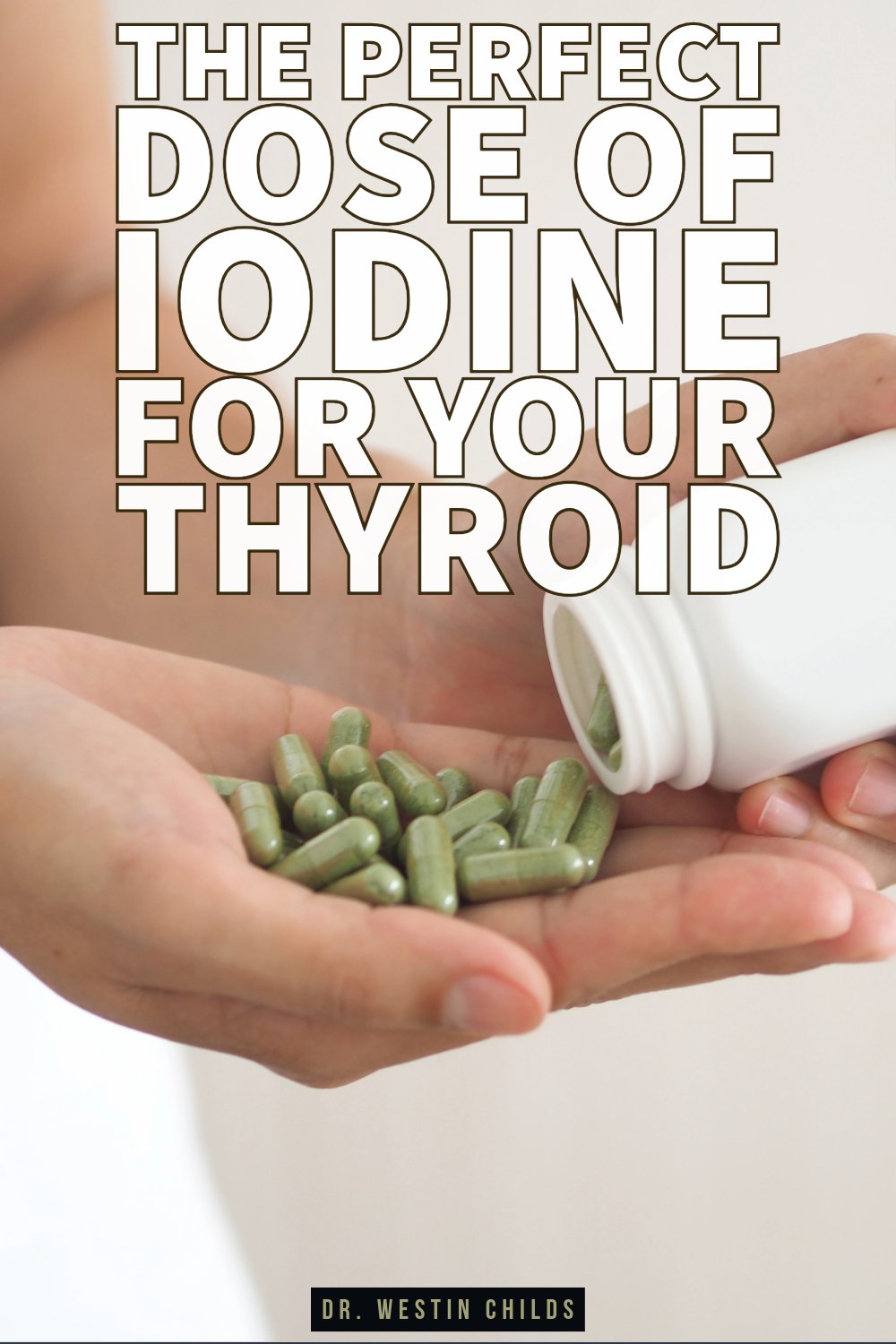
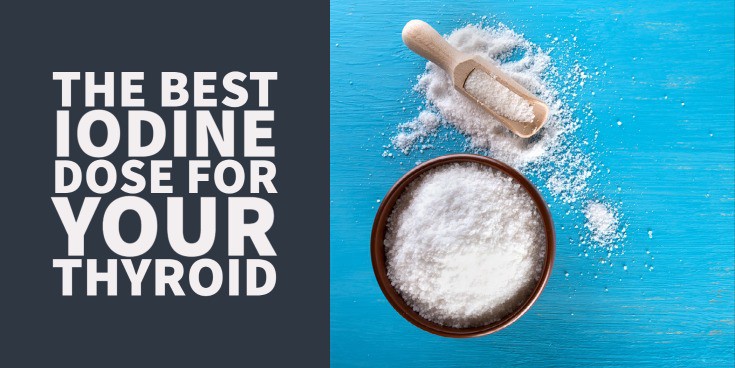
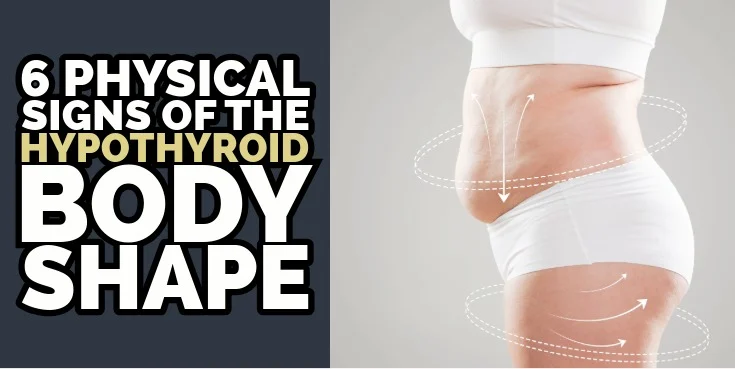
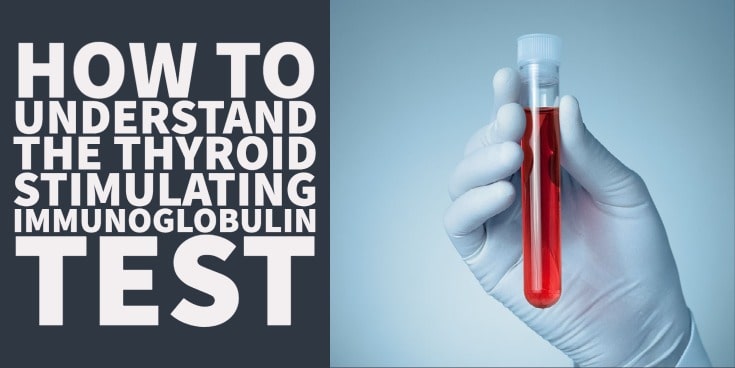
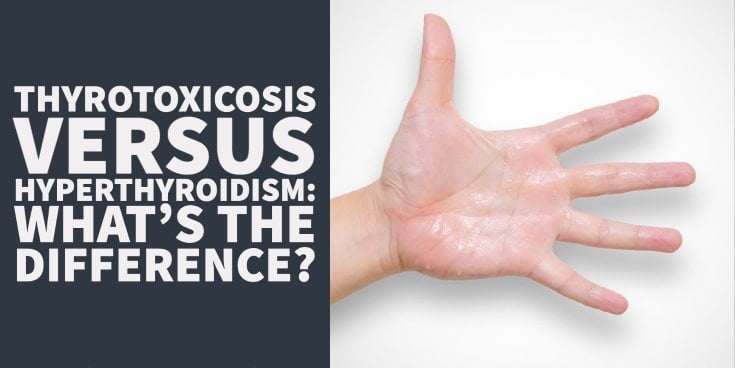
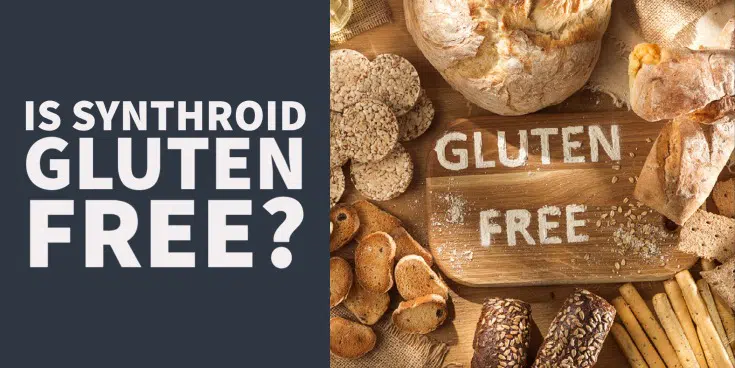
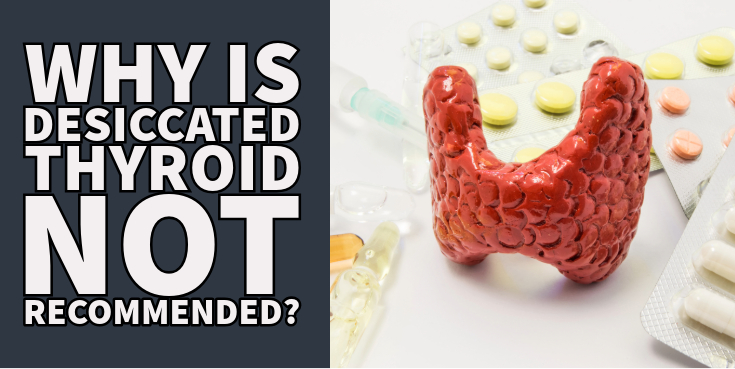
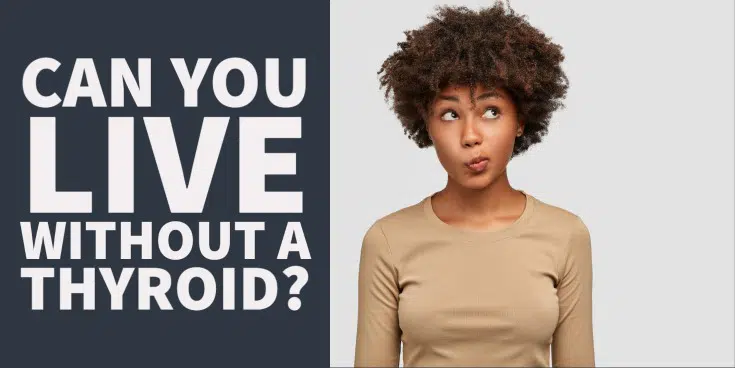

I have been on 50 mg of iodoral every day for a while. I am thinking to lower it to 25mg. and then to 12.5mg a day. I seem to feel fine on the 50mg. but according to you, it may not be best. Can I just reduce it to 25mg. from 50 mg. and then after a little while, reduce it to 12.5mg? Any advice would be appreciated.
Hi Dena,
Yeah, that should be fine. The 50mg dose, in my opinion, is way too high and I see no benefit to using doses that high consistently.
Hi Dr. Childs,
Thank you for providing excellent educational material!
I have noticed Iodine to be a critical component for my energy. But, the story is far from over.
About 2 years ago, I started with a sea supplement (capsules), starting with 1 and got up to 5 daily. At 5 of these, food source capsules, I had energy. If I skipped a day, my energy would bottom out. Then I moved to other forms of liquid drops, trying 3, 6, 9, and 12 mg. daily. I would get a push out, possibly the Bromine pushout, along my jaw line.
Blood testing was not consistent, at 9 mg daily, I still tested low for blood iodine.
Then with the same brand, at 12 mg daily I tested slightly high.
I now take about 7 mg. daily in pill form, but I don’t know where my labs are since current
However, I have noticed recently that I am craving brazil nuts, like a crazy craving; I wonder if my selenium is low?
Interesting to think about.
Maybe I should try your brand, does it contain both iodine and selenium?
Hi Cindy,
T3 conversion booster contains both selenium and iodine: https://www.restartmed.com/product/t3-conversion-booster/
My thyroid multivitamin contains both as well: https://www.restartmed.com/product/thyroid-daily-essentials-thyroid-multivitamin/
My pure iodine complex does not, however, because it’s not always necessary.
I find all your information noteworthy and have begun taking the Berberine. Not sure if it’s doing what it’s supposed to yet. I have only been taking it about 10 days.
Having to go to a regular M.D. after 20+ yrs with a N.D. has been hard. Medicare doesn’t help cover the cost and limited income is a reality.
Nice of you to offer the giveaway.
I appreciate all the helpful information you provide. It has helped me a lot.
I have Hoshimotos/hypo. I take a thyroid Support supplement that contains iodine from the brand Zhou. Ever since I started taking this, my energy levels have improved tremendously. I’m just trying to figure out if the iodine dose In this supplement is too high. I know the iodine converts to .15 mg per day but would the kelp at 38mg out me into the very high dose?
It contains the following:
• Iodine (as Atlantic kelp and potassium iodide): 150mcg
• Kelp 38mg
• selenium 200mcg
I take Ponaris Nasal Emollient for Post Nasal Drip. I take two drops in each nostril morning and night. Each drop of Ponaris contains approximately 150 mcg of iodine (1200 mcg iodine each day). Is 1200mcg daily to much?
Hi Doctor,
After many months of not taking my thyroid medicine, Armor, I
started taking a dose of 12.mg iodine twice a week. Just the day before I took a blood test, I had taken one dose of this amount. My test results were high levels of TSH andthyrorglobulin. Now my
thyroid doctor, which I haven’t seen in about a year suggests going right back on my daily dose of 120mg of armor daily. However, he does not know that I took this dose of iodine the day before the blood test. My T3free levels showed 2.54pg/ml and freeT4 of 0.4ng/dl. (Tsh was 81.240 u(IU)/ml and thyroglobulin AB was at 681(IU)/ml). Could you explain why his concern?
Hi Dr. Childs! Always enjoying reading your blogs/ material, super informative. In March 2021, my TSH was 5.9, with FT4 and FT3 in normal range (around 50% on scale for FT4 and lower on scale for FT3). Reverse T3 was 18. So I started to take 6mg to 12mg iodine, daily (combo of Violet and your brand). 4 Months later I retook thyroid blood panel and my TSH jumped to 11.6? My Reverse T3 increased to 21.8 I take Selenium 200mg, Zinc and other natural thyroid boosters (ashwaganda, etc) so not sured why the TSH got higher? Super bummed. Appreciate your input.
Hi Natalie,
Could just be a spurious test result or interference with the thyroid lab assay from something like biotin.
200 milligrams of selenium? I am sure you mean 200 micrograms.
Thank you for providing terrific resources!
Do you provide specific resources for those who have had thyroid removed?
Hi Vickie,
Yes, I have articles on all thyroid topics including thyroidectomy:
https://www.restartmed.com/thyroidectomy-5-things-every-patient-without-a-thyroid-should-know/
I take at least 250mcg of Iodine…I have taken 3MGs and I usually feel heat generated in my body…maybe a good thing, maybe a sign of too much Thyroid hormone( I have Hashimoto’s) ,? I can try taking 400-600mcg on a regular basis for a while to see if after a couple of months I can take 3-6MGs again without the feeling that I’m generating heat.
Hi Frank,
Be cautious when using high doses of iodine. I’ve seen more than a handful of people throw themselves into sticky situations when playing around with iodine dosing.
I have been very slowly supplementing with Lugols 5% iodine, but I am not sure how much I am actually taking. Is there an easy inexpensive test to test for iodine levels? I did take one recently, but it was not easy or inexpensive.
Hi Pamela,
Great question! Unfortunately, pretty much all of the iodine tests available have problems with accuracy. At this time there really isn’t a great way to test for iodine which is why I generally recommend against it. If you want to see a list of all of the available tests and the pros/cons of each please see this article: https://www.restartmed.com/iodine-testing/
Hi. Dr. Childs. I’m working with a doctor to figure out my mystery illness as well as my 3 yr old daughters. Tired, cold hands and feet, digestive issues, dehydration, low mood and low energy and also erratic behavior. We haven’t felt well since she was born including a horrible pregnancy. I gave birth at 40 years old. I am a highly sensitive person. My doctor has me taking 12.5mg of iodine daily. I’ve never taken it in the past. She also has me on a calcium supplement as well as a few other supplements. A couple of times my throat has turned bright red, inside and out, a rash on my neck, and I have swelling in my throat behind my tonsils. She thinks I have the flu I don’t. Does this sound familiar to you? Thank you for your time.
Suggested correction to this section “Some people know that higher doses may provide even more benefits which is why they are constantly pushing the limits. If you want to push higher than 300 mcg per day, I do not recommend exceeding 1 gram per day. This higher-end range is based on the average intake of the Japanese population which consumes around 1-3 grams (1,000 mcg to 3,000 mcg) on average.”
Change 1 gram per day to mg per day?
Hi Ann,
Yes, you are 100% correct! That is a typo and it has been corrected. It should read milligrams, not grams.
Hi Dr Childs ,
Thank you for information. My endo. will only test TSH. I was on levothyroxine for a long time and I asked him for liothyronine and he refused (& stubborn). I am fatigued, joint pain, losing hair, constipated. I switched back to Amour 45 mg/d which I hear sold to big Phar. and doesn’t have T3 in it anymore. He hasn’t a clue about iodine so I put myself on 2% lugol’s. Their dosage is 3 drops (3000mcg.) /day. I have 3 of your products (T3 booster )Nothing seems to make a difference. I am tortured by my symptoms (listed). They removed 1/2 gland, I think all I needed was iodine. Any help is appreciated.
Hi Tatiana,
It sounds like you probably would benefit from more T3. Alternatively, you may also be missing something that is mimicking your thyroid symptoms: https://www.restartmed.com/medical-conditions-that-mimic-hypothyroidism/
Hi! I “was” a fan years ago of high dose iodine from reading Dr. Brownstein’s book. Took 25-50 mgs felt awesome but the awesomeness stopped yet I continued taking it a total of 4 months. Thyroid levels OFF THE CHART in Dec 2017 by 24 hr urine catch @ 38424!!!! Yep! Major heart palpitations, I could feel my heartbeat in my rectum, BP off the charts, so much went wrong! Drs couldn’t do anything but allow my body to process and get rid of it. Took a while, wasn’t fun. Death looming daily. Fast forward to today, I have had normal level for several years w/o major side effects (thank God) although I do still have a multinodular thyroid. Thank you for being one who tries to educate others correctly.
Hi Michelle,
Thanks for sharing. Your story tracks with many others, unfortunately. The problem is that many feel good initially but then end up with thyroid problems down the road.
Hey Dr. Childs,
I’ve been taking 435 x 2 mcg of iodine from kelp tablets along with zinc and selenium since I understood that I have subclinical hypothyroidism (non-autoimmune) TSH = 4.9. I took a test for the antibodies and both of them returned as <3 (probably zero as they don't indicate it as zero even if it is).
After a couple of weeks, I took 500 mg of L-tyrosine with the iodine (same dose) and after some time, I got tingling in my neck around the adam's apple. This got a bit irritating and also started affecting my voice. The pain persisted throughout the night. Scared to death the next day I got the thyroid test done again, and there were no antibodies again (same values as before), except my TSH was 9.01 but I had terrible brain fog. I took 1000 mcg of only iodine for a couple of days and that iodine actually made me feel way better and the pain went away after two days since the incident. Could this mean I had a quickly formed goiter?
Also, could you clarify whether taking iodine and selenium together causes iodine to be somewhat utilized rapidly (I read this somewhere), leading to a demand of more iodine by the thyroid?
I'm certainly going to lower my iodine dose to 435 mcg and hoping my TSH falls within the optimal range soon.